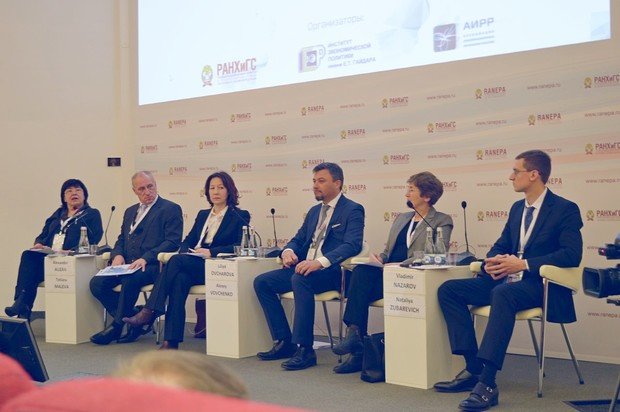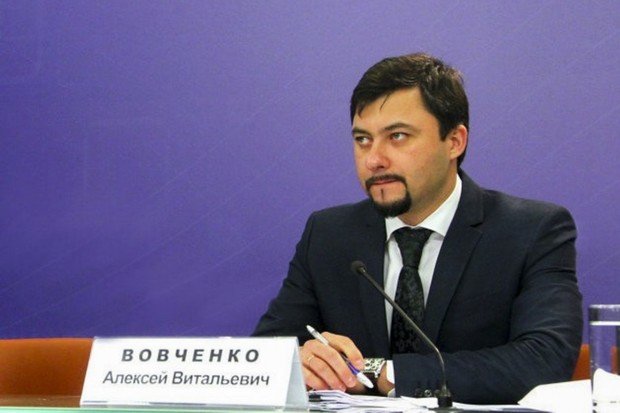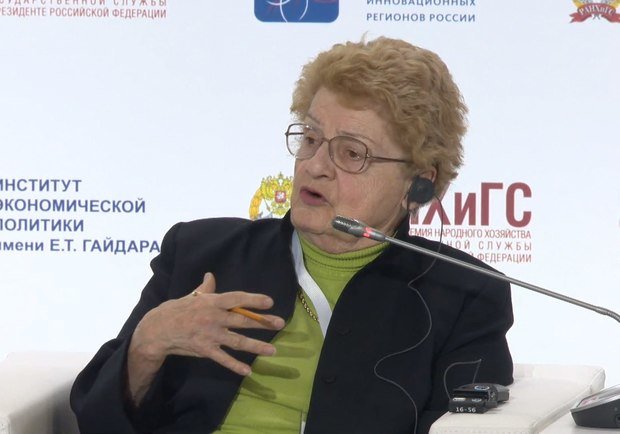''Bring the middle class up – it will eliminate the difference between the poor and the rich''
It was urged to revise social policy of Russia at the Gaidar Forum. An offer to start with increasing pension age
'Will social policy remain a national priority?' experts of the Gaidar Forum asked themselves and the audience a bit provocative question at one of its panel sessions. And they decided if it remained a priority, paternalism that is habitual for the majority of Russians needs to be eliminated. Even a representative of the Russian government seemed a real paternalist in comparison with such people. Realnoe Vremya tells the details.
Left voters, right power
It's curious but two of few high-ranking guests among a small flock of people turned out to be VIP of Tatar origin – it was State Duma deputy and ex-Health Minister of Tatarstan Ayrat Farrakhov and his successor Adel Vafin. They didn't join the discussion, though moderator, Dean of the Economic Faculty of the MSU Aleksandr Auzan asked the audience to express its opinion and ask questions. Meanwhile, this discussion was so interesting that the hall became completely full by the middle of the debate.
The presenter admitted he was neither a specialist nor expert in social policy but was 'its object as maximum'. On the one hand, Aleksandr Auzan said 'I work in public education, on the other hand, having looked at me, one can understand I'm a pensioner. In addition, I sometimes turn to a doctor.'' In fact, any person can belong to these words, though in different periods of their life – the interest in the discussion comes from here. ''In addition, why this topic is important for Russia,'' Auzan said. ''Because as one famous Russian public activist said, in our country, voters are on the lefts, the power is on the right.''
Champion of the discussion, Director of the Institute of Social Analysis and Forecasts at RANEPA Tatiana Malyova showed the difference in outlooks between the rulers and those who are ruled. But, firstly, she described 'the point we are at'. This point is sometimes contradictory (approximate citation):
''Yes, there were positive tendencies in 2017, and everybody would admit with pleasure the economic growth was also accompanied by a growth of social sphere. But the puzzle isn't easily completed here. Yes, there is good news: record low inflation, some revival in the consumer market and, most importantly, the growth of salaries after a three-year fall. But if salaries and pensions (the latter also insignificantly but grew) demonstrate a growth, the population's income is expected to grow too. And it doesn't happen.''

In other words, we haven't gone through the crisis phase yet. Incomes fell in 3/4 of the Russian regions in 2017. If they grew, the consumer market would grow more than 1% and the population wouldn't need loans so much.
It all means the population's poverty grows. It was supposed this problem had gone, but, no, the poverty level in Russia accounts for big enough 14%. The reporter continued saying that, in addition, the number of the economically active population fell. Big problems with demography started, this pressure will be felt better in the next years.
In Malyova's opinion, the first thing that needs to be done is to increase pension age.
This miraculous measure 'giving a multiplicative effect' and compensating the reduction of the economically active population can't be postponed any more. In addition, measures that may won't raise but at least minimise the demographic fall are needed.
''In other words, we need to reform social protection,'' Tatiana Malyova concluded. ''Even if Russia would start a rapid growth in the short run, the demographic situation shows that we will be having more dependants. This is why social protection needs to be really targeted.''
More good and different transfers
In answer to the presenter's question what the government was going to do with the 14% level of poverty, First Deputy Minister of Labour and Social Protection Aleksey Vovchenko reminded the evolution of the Russian government's attitude to the crises that disturbed it in the post-Soviet era:
''The government did nothing in 1998,'' the deputy minister reminded. ''In the 2008-2010s, it behaved in a completely different way by taking measures to support the population's income, especially the population that lives on salary and pension. We didn't fail in terms of income thanks to these direct transfers.''

But Vovchenko admitted real incomes seriously fell in the crisis in the 2014-2016s, more than GDP. For this reason, the country will pay great attention to those 'transfers to the population' in the form of revaluation of pensions, social benefits to pensions, salaries of public employees first.
''Yes, the Russian president announced the demographic programme. Actually, it is the same support of the population,'' the deputy minister claimed.
As strange as it might sound, Vovchenko looked at the discussion as main supporter of the social country. The moderator even mildly reproached him after his speech – so we're going to fill the gaps with money, not to breed the middle class.
We don't have federalism. Wrongly
Famous specialist in regional problems, MSU professor Natalia Zubarevich continued describing the bad 'point' the Russians were at:
''The situation with income is still bad. That quarter of the regions where incomes grew last year are underdeveloped territories where these incomes were initially low. There wasn't any growth in the other regions. There were only two differences in 2017. Firstly, Moscow has gone ahead much more, secondly, money goes mainly to oil and gas regions and to the capital again.''
However, regional budgets define social policy in the country. And they started to save money from social protection in 2017. Moscow provides a lion's share of the surplus of regional budgets, of course, that the Ministry of Finance reports about with pleasure. More than a half of the regions have deficit budgets.
Zubarevich also remembered regional debts and the strict federal supervisory pressure.

''We don't have federalism,'' the scientists concluded. ''And diversity actually saves our country because everyone survives in their own way. Diversity is a possibility to adapt, not a problem. So the pressure on the regions is not the best way to fulfil the state's social policy.''
A question was asked from the hall in the end: ''What's the most effective mechanism in fighting against social inequality?'' Tatiana Malyova replied.
''We need to fight, so that the low bar won't be too high. And the high one can't be regulated,'' she said almost like an old and wise grandmother from an anecdote about the difference between revolutionists in 1917 and 1825 that was popular in the early 1990s. ''The middle class needs to be brought up. It is what eliminates the difference between the poor and the rich.''